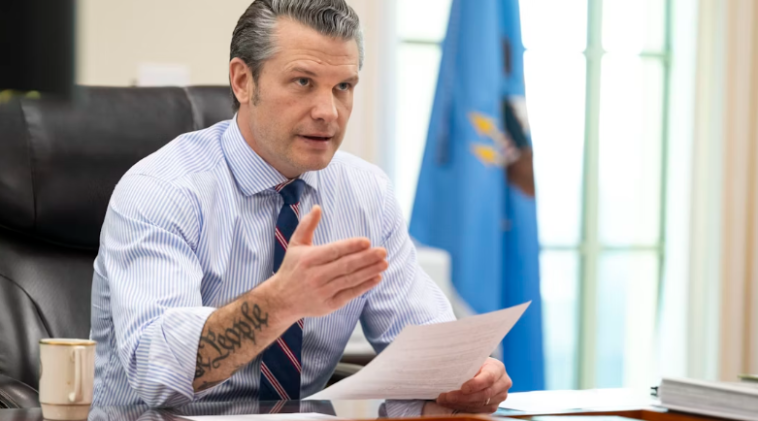Defense Secretary Pete Hegseth is leading a major overhaul of military fitness standards after a damning new report revealed that over two-thirds of National Guard and reserve troops are classified as overweight or obese. The findings, Hegseth said, reflect years of lax enforcement and misplaced priorities that have left America’s fighting force dangerously unprepared.
“Completely unacceptable,” Hegseth declared in a public statement. “This is what happens when standards are ignored — and this is what we are changing. Real fitness and weight standards are coming back. We will be fit, not fat.”
The move comes after a study by the American Security Project found that approximately 68% of National Guard and reserve members are either overweight or obese, including a staggering 21% officially categorized as obese. The study also noted that part-time soldiers often face greater challenges maintaining fitness, citing inconsistent training and a lack of accountability.
Under Hegseth’s new directive, the Department of Defense will implement tough, uniform physical fitness standards across all combat roles — with no gender-based modifications. The new system will treat every service member equally, demanding the same level of physical readiness regardless of gender, rank, or role.
The updated fitness standards will be phased in starting June 1, 2025, with full implementation required for active-duty forces by January 1, 2026, and for Army Reserve and National Guard forces by June 1, 2026. The revised fitness test will focus on core exercises essential to battlefield performance, retaining measures like the two-mile run and hand-release push-ups, while eliminating gimmicky exercises such as the standing power throw.
The changes reflect a broader Trump administration effort to refocus the U.S. military on traditional warfighting capabilities — strength, stamina, combat readiness — rather than the social engineering experiments that dominated under prior leadership.
“Being in the military is about winning wars, not ticking boxes or playing political games,” said one senior Pentagon official. “We’re bringing back standards based on excellence, not excuses.”
Completely unacceptable.
This is what happens when standards are IGNORED — and this is what we are changing. REAL fitness & weight standards are here.
We will be FIT, not FAT. pic.twitter.com/KWMlFbS1c8
— Pete Hegseth (@PeteHegseth) April 25, 2025
Hegseth, a veteran himself, has consistently emphasized that physical readiness is not just about appearance — it’s about survival. Troops who are unfit put themselves and their fellow soldiers at greater risk on the battlefield, undermining unit cohesion and mission success.
Critics from the left are already complaining that the new standards are “too harsh” and could disproportionately affect certain demographics. But Hegseth and Trump officials are standing firm, arguing that the real injustice is allowing lowered standards to endanger the lives of America’s warriors.
“Every American who wears the uniform should be ready to fight and win,” Hegseth said. “That’s not just a slogan. It’s a promise to the American people.”

